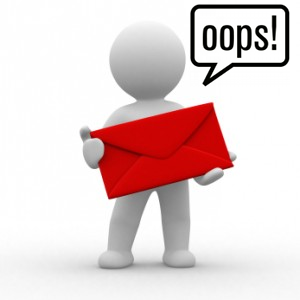BECOME W.I.S.E.R. with Your AI Prompts - A guide for sales managers
Everyone’s wittering on about AI like it’s the second coming. But here’s the rub: if you give it half-baked prompts, you’ll get half-baked answers....
2 min read
Varuna Vaswani Updated on June 12, 2014

Email marketing = SPAM. That’s the perception of email marketing nowadays. More and more business owners are led to believe that email marketing delivers little or no ROI. But is this really true? Does email marketing really not produce ROI?

Over the past few years, email marketing’s reputation has deteriorated. From being one of the top lead generation tactics, email is increasingly seen as a negative tactic and earned the label SPAM.
According to The Marketing Tech Blog, 45% of all email messages worldwide is SPAM. That’s $14.5 billion SPAM emails. It’s no wonder businesses are shying away from email marketing and leaning towards social media. This blog dives into some misconceptions surrounding email marketing and discusses whether it can still produce a worthy ROI for B2B businesses.
I cannot stress this point enough – email marketing does not equal to SPAM. In Australia, the Spam Act 2003 considers SPAM as unsolicited commercial electronic messages, which have the following characteristics:
Essentially, an email is classified as SPAM if it contains commercial messages and is sent to a list without explicit permission from the people on that list. Therefore, your business is not violating SPAM laws when you send emails to your contacts, i.e., people who have explicitly opted-in or subscribed to your emails.
The simple answer: Yes and No.
Email marketing will absolutely not produce a ROI, if it is used to send promotional content to a list of unknown contacts. This is a mistake quite a few organisations make. They see email marketing as a tactic that can boost their awareness, buy a list from a broker and do an email blast without getting explicit opt-in. What makes it worse is that they send promotional content that provides no value to the reader, and therefore gets deleted almost immediately. In this case, email marketing will never be able to deliver a healthy return.
However, if executed properly, email marketing will undoubtedly produce a positive ROI. Build an email program that is centred around delivering engaging, valuable content to contacts that have opted-in to receive your emails, and you will have better lead generation results and ultimately, higher ROI.
A survey by Marketing Sherpa finds that businesses with email marketing programs on average enjoy an ROI of 119%. In fact. one marketer responded, “Email marketing, even as basic as we did it in 2012, outperformed all other forms of online marketing combined for us. We are investing much more in email. It works better than PPC, better than online display ads and provides a channel for content marketing”.
Additionally, email marketing has been proven most effective when used for lead nurturing. When coupled with an automation tool, emails can be the channel by which you regularly share valuable information with your leads to progress them further along their buying journey. Additionally, nurtured leads make 47% larger purchases than non-nurtured leads, according to The Annuitas Group.
So when it comes down to it, email marketing can produce a high ROI when executed well and particularly when used for lead nurturing. To maximise ROI, don’t forget to:
To learn more, refer to our eBook on measuring ROI.
Subscribe to our latest news and updates on HubSpot.

Everyone’s wittering on about AI like it’s the second coming. But here’s the rub: if you give it half-baked prompts, you’ll get half-baked answers....

The business world is falling head over heels for AI—and who can blame it? With promises to reduce grunt work, uncover insights, and turbocharge...

Search is evolving - fast. For two decades, SEO has revolved around Google’s algorithm: keywords, backlinks, metadata, and page speed. But with the...